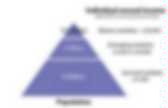

SolarFire.co - Solar Thermal Solutions. Global Envision Latest Stories | Global Envision. Five Surprising Facts About Energy Poverty. The world needs to double or triple its current spending—estimated at about $400 billion a year—to meet the United Nations' goal of bringing clean and modern electricity to all people by 2030, says a new report by a wide group of international agencies led by the World Bank. Although nations are succeeding in bringing power to more people, those efforts have barely kept pace with population growth over the past two decades, said the report, released Tuesday in Vienna. As a result, about 1.2 billion people—nearly as many as the entire population of India—still live without access to electricity, while 2.8 billion people rely on wood, crop waste, dung, and other biomass to cook and heat their homes.
Unless the world addresses the widespread problem of energy poverty, the World Bank said, other efforts at economic development are likely to fall short. (See related story: "The Solvable Problem of Energy Poverty. ") Here are a few of the significant findings of the report: Free power from a recycled washing machine, generating enough to live off the grid.
BioLite stove. Cook Stove. Solar energy. SolSource : One Earth Designs. Point Source Power. D.light. SunFunder. M-KOPA Solar. DIY Backyard solar death ray (Video) MPOWERD | Makers of Luci Solar Light. Buy This Amazing Looking Solar-Powered Lamp, Light Up The Developing World. Could the same lamp that’s designed to bring light to the billions worldwide who lack quality electricity become a lighting option for wedding planners (and others) in the U.S.? That’s the ambition of design-firm and tech incubator MPOWERD, whose new solar lamp Luci features a buy-one-give-one model to let sales in the West fuel distribution around the developing world. The design--“compact, durable, user-friendly, and, critically, affordable”--makes Luci a natural fit for two markets: one is the 1.6 billion people who experience energy poverty, combined with the 1.5 billion others who are either off-the-grid or can’t afford the grid, says Luci’s director of communications and social impact Jill Van den Brule.
The other is people in industrialized nations who find themselves temporarily without perfect access to electricity: whether they’re camping, throwing an outdoor party, or dealing with a blackout. Luci. Launched on Indiegogo this month, Luci is a proposed sustainable light source for the three billion people around the world living without electricity.
Designed by the group MPOWERD, Luci is the first in a series of solar-powered products the company hopes will address the crippling effects of energy poverty around the globe. First and foremost, Luci hopes to provide families with a safe, green and affordable alternative to the widely-used kerosene lamp, whose open flame and toxic fumes pose a looming threat to the household. On the other hand Luci will provide families with access to a clean light source that's also safe—Luci never heats up so that it is hot to the touch, making it suitable for both children and adults. After up to five hours of charging in direct or indirect sunlight, Luci's powerful solar panels are able to provide approximately 8-12 hours of enough vivid light to brighten an entire room.
Images courtesy of MPOWERD. Rural Energy. The challenge: Access to clean, affordable and reliable energy is a fundamental driver of economic growth, environmental sustainability and social development. Still 1.4 billion people around the world lack access to electricity, while 2.7 billion people cook with traditional biomass. According to latest forecasts (source International Energy Agency) 1.2 billion people in 2030 will still lack access to electricity. The global electrification rate will rise from 79% in 2009 to 85% by 2030 — but only 50% of people living in sub-Saharan Africa will have access to electricity. Market value: The energy market in the BoP is estimated to be worth US$433 billion.
The opportunity: Next to food and housing, energy is the biggest expense for low-income households. New innovative solutions are required to address this opportunity and address the energy demand for energy services beyond the demand for lighting and cooking products. BoP Inc. - Rural electrification.